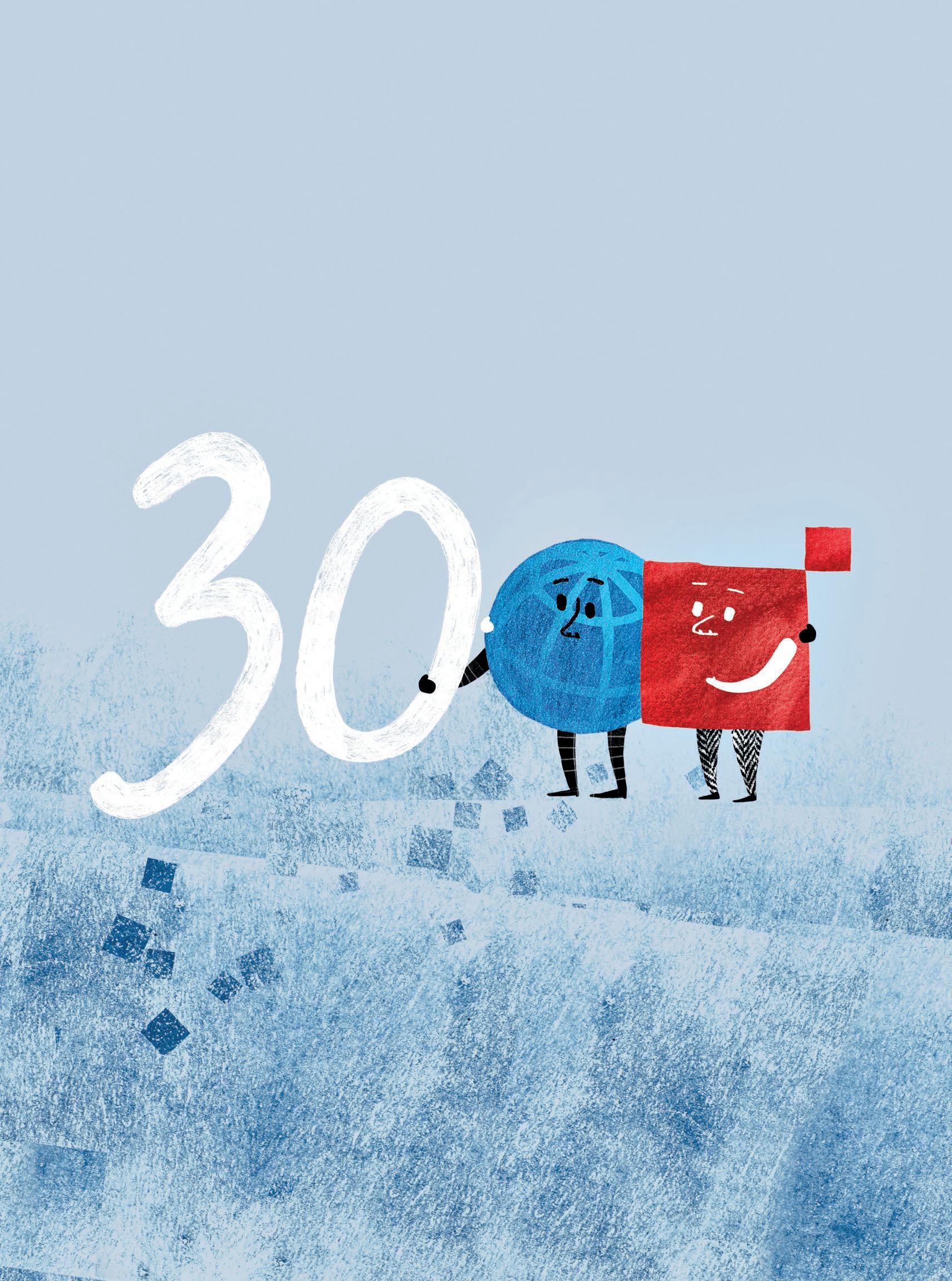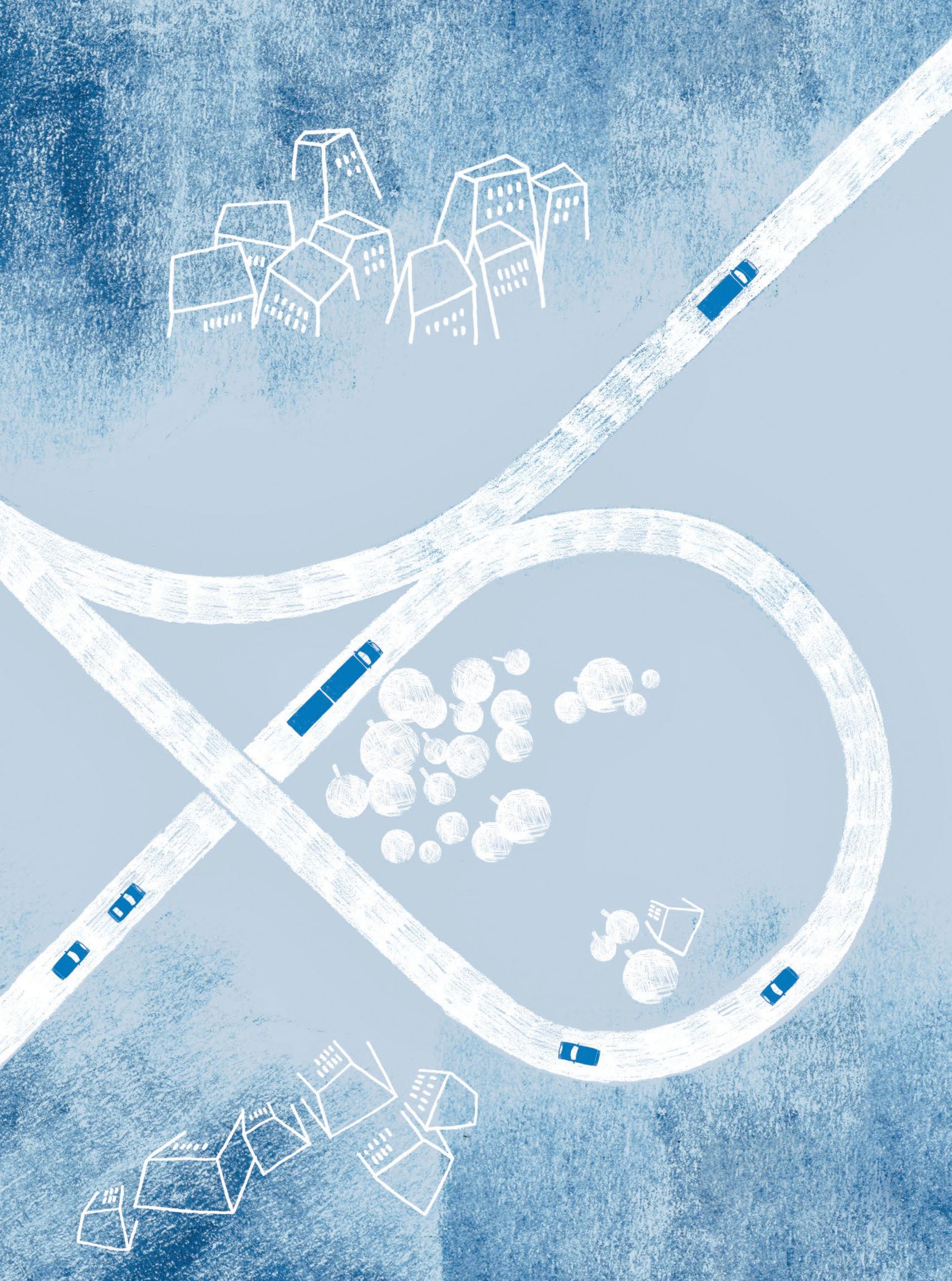





The partnership between Croatia and the World Bank Group began in 1993. Since then, we have worked together on post-conflict reconstruction and social and economic revitalization, economic stability, Croatia’s preparation for European Union membership, and resilience to respond to economic shocks and disasters.
We focused on infrastructure reconstruction, strengthening institutions, improving the provision of public services to citizens, safeguarding the environment, and better protection of vulnerable members of society.
The World Bank and the International Finance Corporation have supported over 100 projects worth US$ 6.5 billion and provided knowledge and technical assistance to help strengthen institutions and support policymaking through more than 330 reports and studies.

Our ongoing program focuses on:
– Helping authorities to implement the National Recovery and Resilience Plan (NRRP) in several key areas, including: modernization of the R&D framework; operationalization of the Do No Significant Harm principle, and pension system sustainability, among other things.
– Improving the outcomes and quality of the education system.
– Modernizing Croatia’s courts and land administration systems to provide better and quicker services to people and businesses.
– Making public transport companies more competitive and less reliant on state subsidies to improve services.
Supporting post-earthquake reconstruction of selected health and education facilities.
– Supporting the innovation ecosystem and the research and development projects of innovative companies and researchers, and connecting public research institutions with the private sector.

– Improving the business environment by simplifying processes for business registrations and the issuance of construction permits.
– Providing targeted financing to crisis-affected enterprises that are otherwise viable exporters, and to specific firms, such as companies in less well-off regions, women-owned firms, and enterprises supporting youths.
– Working on improvements in the investment climate and supporting sustainable investments in the financial sector, agribusiness, tourism, renewable energy, retail and manufacturing through the International Finance Corporation.

The removal of landmines after the war, with the World Bank’s help, allowed for the emergency reconstruction of bridges, roads and railway lines, the restoration of irrigation and flood protection systems in Eastern Slavonia, the revitalization of agricultural production, and the development of tourism in areas of special state concern, as well as for the safe return of displaced people to their land.
— Miljenko Vahtarić, former Assistant Director, Croatian Mine Action Center– We provided funding for over 400 community infrastructure and economic revitalization projects, including the construction of kindergartens, schools and community centers, repairs to water supply systems, and grants to small and medium enterprises, artisans, businesses and cooperatives.
– 130 kilometers of new roads were built and about 1,600 kilometers repaired in war-affected areas.
– Our analytical work assisted the government to increase the efficiency and effectiveness of EU funding for Eastern Croatia with the aim of helping this less well-off region catch up and unlock its growth potential.

– We have provided policymaking advice and financing to support fiscal consolidation targets, the sustainability of public finances, and the reduction of public debt, and we have strengthened the response of the authorities to unprecedented economic shocks.
– We helped to strengthen the role and independence of the Fiscal Board and carried out reviews of the expenditures of several ministries, contributing to Croatia’s exit from the Excessive Deficit Procedure of the European Commission.
– Through Public Finance Reviews, we are providing both solutions to debt sustainability issues and avenues for fiscal adjustment, while creating fiscal space for EU funds absorption.
– We supported upgrades of the tax administration system by improving business processes and introducing online services, which is reducing tax arrears, improving compliance, and increasing transparency.
– We contributed to the reduction of the backlog of judicial cases through the introduction of an Integrated Case Management System in all courts across Croatia, allowing for the monitoring of performance and improved clearance rates and disposition time for cases. The automation of case processing has lowered the cost of doing business and is increasing transparency.
– Modernization of the land administration system brought about a major reduction in case backlogs and reduced the transaction time for mortgages from 46 days to 9 days in Land Registry Offices, and from 30 to 6 days in Cadaster Offices.
– We helped to develop Income and Consumption-Based Poverty Maps at subnational levels, so policymakers can have better insight into the geographical distribution of poverty in Croatia. The maps provide estimates of poverty data at the county, city and municipality levels. So with these maps, policymakers could improve the management of the limited resources available, better distribute funds among the population that needs assistance, and improve the targeting of social welfare benefits to reduce poverty.
– We are helping policy makers and stakeholders to jointly build Croatia’s comprehensive policy framework for the fight against poverty and social exclusion, which will better target social policies for the most marginalized and vulnerable segments of the Croatian society. A monitoring and reporting system is being developed, which will allow the authorities and stakeholders to assess the effectiveness of various measures, and objectively evaluate progress; adjust the course of action, and clearly show results.


– We supported the development of innovative programs for the community-based provision of social services to prevent institutionalization, while at the same time mobilizing support from communities and civil society organizations to deliver services to adults and children with disabilities.
– We are helping 38 public social welfare homes to transition persons with disabilities, children, and youth to living in the community with needed support intead of in an institution, through the creation of individual transformation plans.
Differences in organizational and equipment standards, disparities in emergency criteria, insufficient training, and differences in the quality of and access to emergency medical services are now a thing of the past in Croatia. With World Bank support, we now have a unified emergency medical system, prescribed standards for equipment and vehicles, and our medical students can specialize in emergency medicine
— Maja Grba-Bujević, Director of the Croatian Institute for Emergency Medicine– We helped introduce, the State Matura, a standardized external assessment of secondary school students’ knowledge and skills, and we supported major school construction and rehabilitation programs that reduced the number of pupils attending three-shift schools and increased the number of pupils attending single-shift schools.
– We have been supporting the design and piloting of the Whole Day School (WDS) model in primary schools with the aim to improve student learning outcomes, particularly among disadvantaged students, through longer instructional hours and improved teacher training and school infrastructure, leading to countrywide implementation of WDS.
– Over the years, the World Bank has provided financial and technical assistance, totaling US$ 335 million, covering water supply and wastewater management, water quality monitoring, flood protection, and irrigation planning.
– Over 230,000 people in 23 coastal municipalities benefited from the improved provision of efficient and sustainable water services through the construction or upgrading of wastewater collection, treatment, and disposal systems along the Adriatic coast, successfully reducing the amount of wastewater pollution entering Croatia’s coastal waters.
– The European Union Natura 2000 Integration Project has helped the country to comply with the EU Habitats and Birds Directives, and to build capacity in national and nature parks for better protection of wildlife. Equipment and management tools are allowing park authorities to preserve the biodiversity in the Natura 2000 network, which covers 36.5% of Croatia’s land area and a significant part of its marine area. The upgrades in visitor infrastructure and interpretation materials have raised awareness of unique habitats and species, and increased support for their preservation.

Along with impressive results in upgrades to visitor infrastructure in national and nature parks, we have prepared new project proposals to be ready to apply for EU funds. This approach has ensured the sustainability of project results and the continuation of investments in the natural resources of the Republic of Croatia, which in terms of its biodiversity is at the very top of the EU.
— Igor Kreitmeyer, Director of the Nature Conservation Directorate at the Ministry of Economy and Sustainable Development
– We helped Croatia make progress toward achieving EU waste targets by introducing Circular Economy principles in the construction and demolition waste sector. This sector has a large socio-economic value and material and carbon footprint, especially due to the 2020 earthquakes.
– Through the preparation of the Blue Economy Report we are helping the authorities to identify policies for the sustainable use of the Adriatic Sea and its maritime resources for economic growth, improved livelihoods and jobs, while preserving the health of Croatia’s maritime ecosystem. This is very important as Croatia is the EU country with the highest contribution of maritime sectors to the national economy.

– We have helped transform Croatia’s two largest international seaports at Rijeka and Ploče into gateways to European corridors by introducing long-term concessions by private investors, expanding current terminals and building new ones, and integrating them into existing and new transport corridors.

– We have been involved in the modernization and restructuring of indebted state-owned roads companies, to lower their reliance on financing from the state budget and improve their performance, planning processes, and efficiency. We helped the government to refinance more than €3 billion out of €5.2 billion of state-owned roads companies’ debt, freeing up resources to invest in other important areas for Croatia’s development.
– We are supporting the development of railway transport by improving the operational efficiency and financial sustainably of three state-owned railway companies.
The World Bank and the Port of Rijeka Authority have been cooperating on the Rijeka Gateway Project for more than fifteen years. The construction of the new Zagreb Deep Sea container terminal is its most important investment, and it has launched a series of related projects that will, in a short period, turn the Port of Rijeka into a core intermodal center of the northern Adriatic. Without the Rijeka Gateway Project, the Rijeka port system would not have developed or survived on the port market.
— Denis Vukorepa, Executive Director, Port of Rijeka Authority
– We provided financial support to companies during the economic slump caused by the global financial crisis of 2008-2009. As a result, the level of exports of supported companies increased by 19% through improved access to finance, while financed companies increased their exports by EUR 225 million.
– Over 100 innovative companies and 40 research groups were awarded R&D financing to improve their products and services, increase their presence on the market, and find new opportunities and business lines.
The Proof of Concept R&D program financed 222 projects from the private sector and academia, helping them to bridge the gap from research to commercialization in the absence of sponsors or venture capital funds, as well as to build product prototypes and launch new products on the market.
The technology development project had a huge impact on creating a start-up scene in the Republic of Croatia. It launched a whole host of instruments and competencies that were not available before and created the conditions for developing ideas for a product or service. It finally connected the science community with industry in a new way of financing projects.
— Dalibor Marijanović, former CEO of BICRO– We helped analyze the effectiveness of public funding for science, technology and innovation and provided recommendations how to improve it through smarter allocation of funds, improved design, implementation, and governance of public support programs, as well as better monitoring and evaluation systems.

– We assisted the country in meeting EU requirements and supported Croatia on its journey to join the European Union and close EU negotiations. In agriculture, institutions and systems have been established to comply with the Common Agricultural Policy and specialized agencies have been aligned with rural development requirements.
– An institutional overhaul of the judiciary sector was supported, which improved the independence, accountability and professionalization of the judiciary, which was necessary for Croatia’s EU accession.
– World Bank projects have helped improve the capacity for management and absorption of EU funds by building a strong project pipeline worth more than €700 million in the areas of innovation and science, environment and nature protection, water, ports, and the judiciary, as well as providing training to public sector institutions.
– We have supported Croatia in defining key development strategies such as the National Development Strategy and important reforms outlined in the National Recovery and Resilience Plan to optimize the use of development funds.

– When the COVID-19 pandemic struck the World Bank provided emergency financing to Croatia, which helped to cushion the effects of the economic and social impacts caused by the lockdown and to speed up economic recovery.
– We responded quickly to two devastating earthquakes of 2020 producing damage assessments which helped the government secure EU reconstruction funds. We provided financing for the reconstruction of damaged public buildings including Rebro hospital in Zagreb.

– We are also helping private sector companies that have been hit by the COVID-19 pandemic, two earthquakes and energy challenges to recover more quickly by improving their access to liquidity. The focus is on approximately 150 companies that have reduced access to credit, including firms from less developed regions of Croatia, those owned or managed by women, and young enterprises with less than five years in operation.


Our main goal for the future is to create an inclusive, green and resilient Croatia, where businesses, communities and regions have the opportunity to thrive.
Investing in people will guide our strategy and projects.

DESIGN Petra Slobodnjak
ANIMATION Alen Vuković ILLUSTRATION Booboo Tannenbaum

